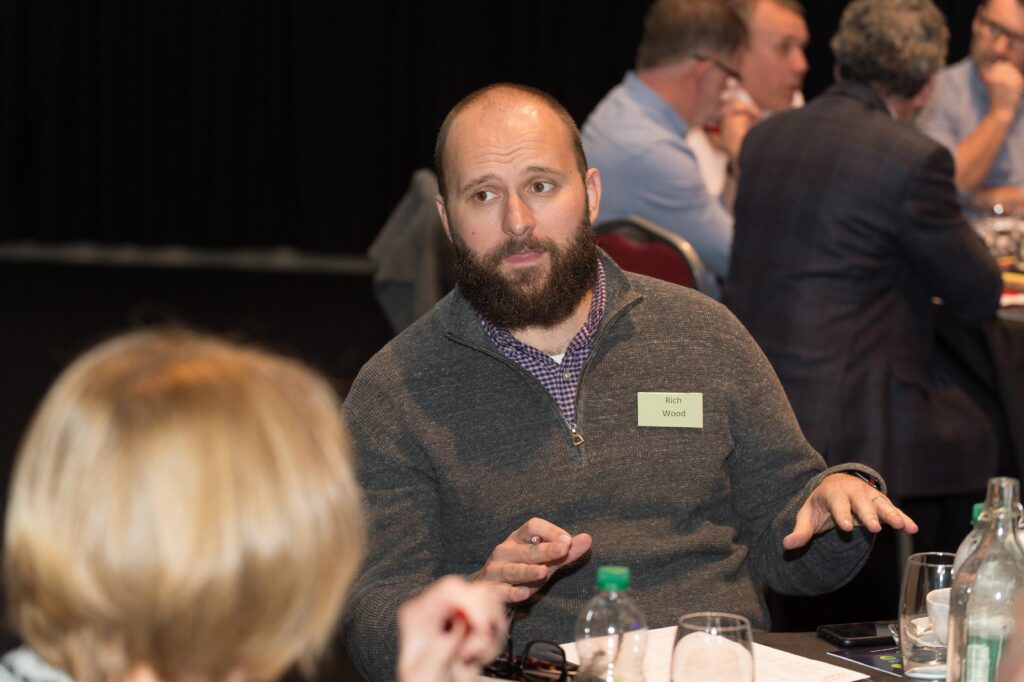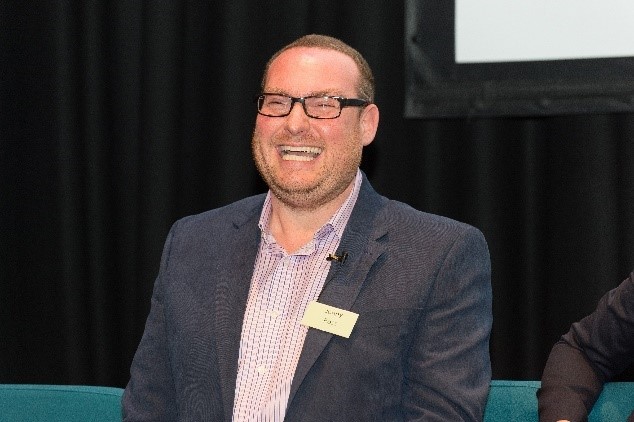How we can learn from the young – to stay young?
29 November 2018 By Victoria Tomlinson
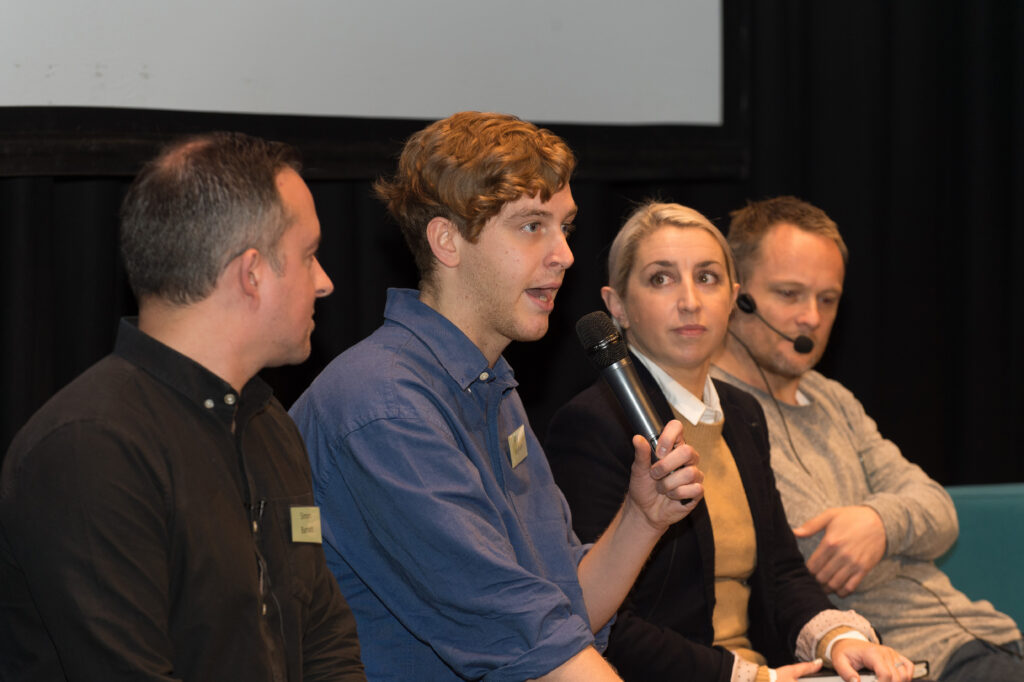
Last week we held the first Next-Up conference. ‘Blown away’ was a phrase I kept hearing through the day.
We had more than 100 seasoned professionals as delegates – people who have left or are leaving corporate life and don’t want to ‘retire’ – mixed up with young tech entrepreneurs, charities, private equity firms, headhunters and an online magazine looking for writers.
The day was full of opportunities.
But the buzz came from young and old generations learning from and helping each other. In ways neither had ever dreamed of.
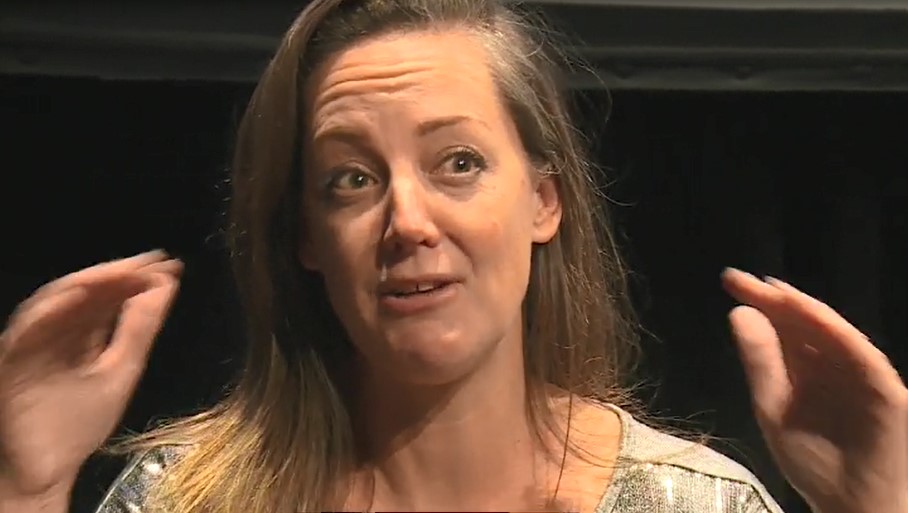
Hear for yourself what they had to say – click here. I think Zandra Moore, ceo of Panintelligence summed it up when she said, “The day made me realise how many people here could offer me support as a sounding board. When you run your business dealing with day-to-day problems, it’s hard to helicopter above that to be more strategic. At the conference, it was incredibly valuable to have really experienced people ask very sensible and challenging questions. I now have five or six contacts to follow up with people who want to help us.
“The room was full of people who I don’t think quite realise their value to people like me.”
So what were the themes that came out of the day?
1. Experienced people LOVE being with and helping the young
Celia Dodd, author of Not Fade Away: How to thrive in Retirement, said to me “How clever to make young people the focus of the day – it’s so different and has created such energy”.
Irshad Akbar emailed me after to say, “The connection between the young with digital experience and those at the other end of the spectrum is a good combination”.
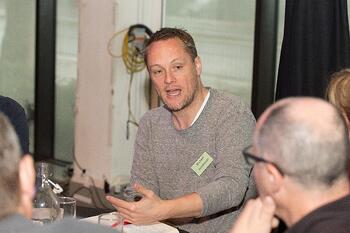
2. Tech is not as challenging as I thought …
Several people said they nearly didn’t come to the day, because we had so many tech entrepreneurs and there was quite a focus on technology.
The tech focus was intentional.
I passionately believe that our generation is short-changing the companies and organisations we advise, help or sit on the boards of if we are not ‘tech aware’. Chairs of boards are increasingly looking for non-executive directors who understand the opportunities and risks coming over the horizon. Think those who spotted the Airbnb risks for the hotel sector; Uber for the taxi/delivery firms or those at Blockbuster who didn’t understand downloads and streaming.
But how do you get people who have avoided tech to open their minds? The young people were brilliant at doing this (thank you to you all!).
Lexi Mills, our keynote speaker, was awesome. No other word. She made the day. She spoke for 35 minutes about tech – everything from AI and algorithms to immersive meeting spaces to the latest apps such as Dizmo. You could have heard a pin drop. The audience was transfixed. She was brilliant at putting it all into the context and perspective of an older generation – recognising the fear of the new, but pointing out why this new world needs the wisdom and experience of seasoned professionals to make it work.
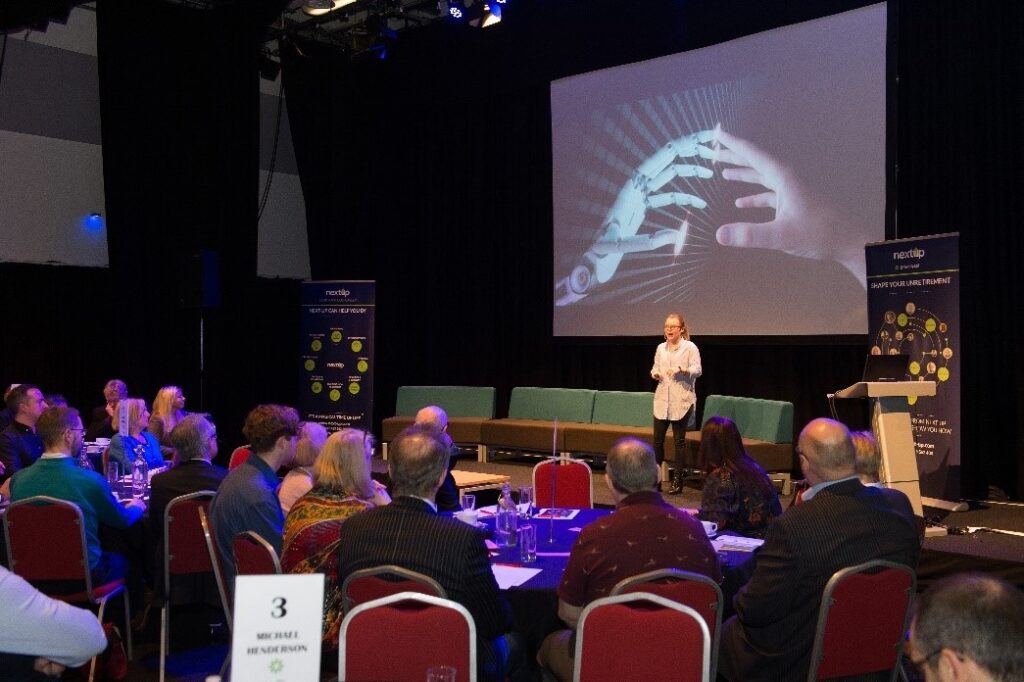
3. A small amount of help can have a big impact
As part of the conference, we had a session where a tech entrepreneur or charity put a challenge to their table to get their insights and help. This was the big success of the day and feedback says that young and old would have liked these to be longer in timing – and actually have more of them.
The challenges ranged from ‘what should we do to mitigate against Brexit’ for Rich Wood of Six & Flow and ‘how should we grow – organically or venture’ for gaming entrepreneur Simon Barratt to Cath Follin, trustee of Emmaus charity for the homeless who wanted to know how they went digital to sell their second-hand furniture.
4. Refiring aspiration
It’s interesting. Retirement is a dream for many – time to travel, exercise, spend time with family and friends. But for many, this dream lacks purpose and after a while there is a sense of – is this it? This blog lays bare the myth for many. When you think that we could easily be retired for longer than we worked, that is a long time to feel restless and unfulfilled.
One delegate emailed me and said, “It’s got me all fired up to get back into the corporate world. But more importantly and hopefully support you in your quest. It’s really opened my eyes.”
5. Finding a path to a happy unretirement
Another email made my day. A director of a FTSE said, “Genuinely moved me to action to change that which is not making me happy. It’s a big step to understand that I don’t want to do nothing, but I equally don’t want to keep doing what I am doing! There is a next step which does not have to be retirement. Few big personal decisions to make over the next couple of months but thank you for facilitating an enlightening day.”
The day clearly made a difference to a lot of people – seeing ways to use their skills, without it having to be a non-exec (several emailed me to say the day made them realise they don’t want a non-exec which to us is as much of an achievement as seeing other options). But also for many, they just couldn’t see what they were to do.
We had a panel of people who had built a portfolio of activities post working-life and this proved helpful and thought-provoking for many.
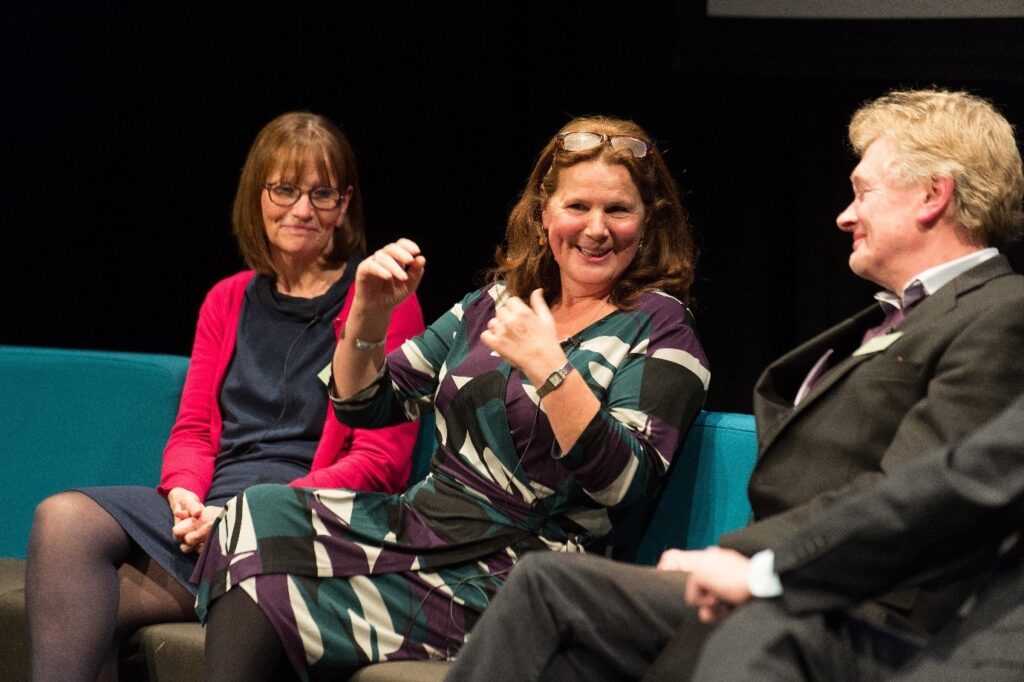
Jane Hustwit, chair of York CVS, gave a short talk on how best to offer your skills – being clear about expectations and matching cultures. She mentioned that she doesn’t want more trustees but what they and other charities would love is another ‘Adrian’. He was a senior professional and helps with everything from the risk register to oversight of the accounts.
Asking for questions, one of the delegates said to Jane, “That was a breath of fresh air. I don’t want to be a non-exec – I am an Adrian. I am great at project managing, getting stuck in. I want to use my skills in a more hands on way. You’ve helped me see another way.”
6. Rebuilding old networks, building new networks
We have been trying to gauge what happened on the day – we built in lots of time for networking. Did it work?
Typical feedback is that people made between three and 10 new contacts each that they will follow up. These were a mix of helping the young entrepreneurs, catching up with old contacts and paid opportunities. One delegate said, “I identified one specific commercial opportunity that is exactly matched to my skill set that I can help with, and identified one other general interest area that whilst not fee paying is of personal interest.”
So people were finding ways to use their skills and get purpose – paid and unpaid. Success?!

7. There is definitely a need
When you start a new business – and Next-Up is still only six months old – there are two parts to being successful. Is there a need, what is it and can we help? The conference confirmed there is definitely a need and we can help. The second issue is trickier! Can we turn this into a business – will people pay and is that enough to cover our costs and make it worthwhile?
In our evaluation survey we asked what people would pay to come to another conference – this varied from ‘we’d like it to be free so you can promote Next-Up’ (mmm!) to ‘I would pay £200’.
We are really grateful that already more than 20 people have offered to help us look at where we go next and how we make all this work.
A big thank you to so many people who helped us shape the day, said yes they would speak at the conference – even before we launched the business – and turned up on the day. Out of 16 speakers, only one had to withdraw because of an overseas trip and that was in plenty of time. And only 8 no-shows on the day out of 120. This is a really committed group of people, young and old.
I said on the day, I think we are starting a movement of some kind here. Not quite sure what but there is definitely a generation of skills that we mustn’t lose. Too many people need them.
